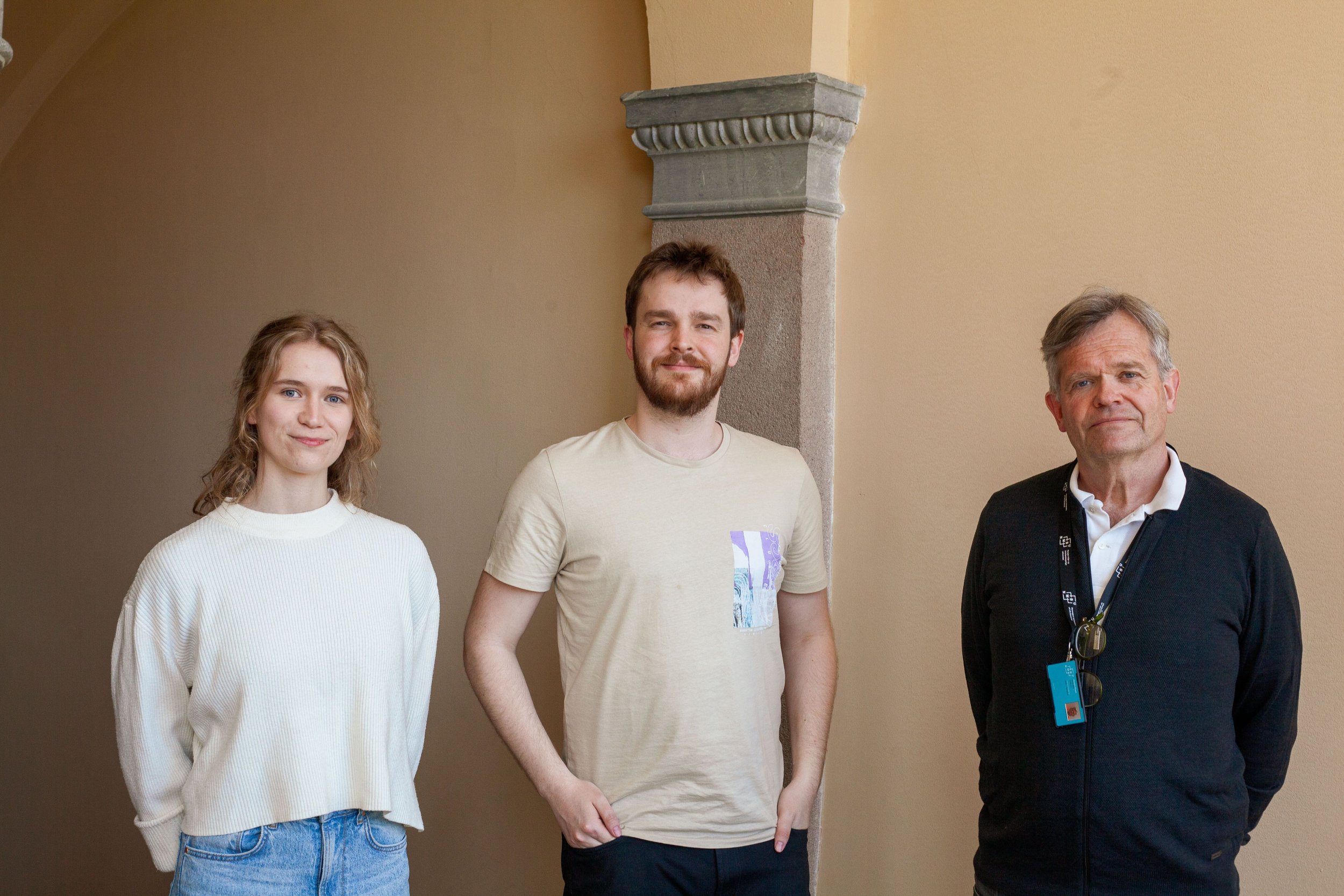STUDENTS’ LEGAL SECURITY

STUDENTS’ LEGAL SECURITY
On April 25th, the resolution on the students’ legal security was passed at the Student Parliament 3. The resolution will be a crucial step for ensuring that students and staff at NMBU are able to understand and use their rights. But what does this actually mean?
Journalist: Elina Turbina
Photographer: Nathalie Genevieve Bjørneby
Illustrator: Anne Trætteberg Reitan
Unpredictable exams
“The past exam periods have shown many examples where students have been negatively affected by unpredictability in their examination processes,” explains Marte Vestvik, the author of the resolution. “The quick changes in these processes can make students postpone and reschedule their whole study plan, and the lack of knowledge of our rights as students can make us feel helpless.”
While NMBU does have a system of working with rules and complaints, it is not obvious for students, and the documents that could help them out are not communicated enough. Lack of transparency when it comes to evaluation criteria, feedback, clashes of exam dates, and abrupt changes in types of examination are just a few problems most of us have encountered during our time at university. As students of NMBU, we have the right to ask for more clarity. However, we do not always know when we are allowed to do so.
“Although students are obliged to read up on the rules and regulations at the beginning of their studies, these documents are usually hard to understand,” Marte adds. “After the introduction course where we get a lot of information at once, these things can slip our minds.” So, when we find ourselves in unfair situations, the abundance of information can leave us confused.
Accessible rules and regulations
In order to prevent this confusion, the students’ legal security resolution was written. Its main objective is to improve the accessibility and availability of the rules and regulations at NMBU to all students and staff at the university. In addition, the resolution aims at improving the education of students and staff when it comes to their rights and obligations.
“We have many projects at a beginning stage that are related to this resolution,” notes the Student Board (AU) member Vegard Sjaastad Hansen. “We want to make sure students know how to approach their study-related issues, who to contact for support and where to look for information.” The regulation enables AU to work with the university on making the rules easy to find and understand.
Interpreting the law
Lecturers and various staff work with these rules and regulations every day. Their understanding of how familiar students are with their rights and obligations, can therefore be skewed. They may also interpret these rules differently, which can lead to unfair situations. Marte, Vegard, and the Studentombud Arne Dag Hestnes want to make sure all staff receive continuous support with an interpretation of the law so that conflicts are resolved fast and effectively.
From the left: Marte Vestvik, Vegard Sjaastad Hansen and Arne Dag Hestnes.
International students are a vulnerable group
After the Student Parliament 2, where this case was first presented, a point about international students was added to the resolution. The demand states that “international students must be recognized as a vulnerable group when it comes to rule of law”. This is an important addition to the regulations because of the additional pressures a foreign student might experience when navigating information about their rights, such as language and culture. As well as that, inconsistencies and abrupt changes in study processes can create very different outcomes and obstacles for international students as opposed to Norwegians. With this resolution, NMBU is obliged to make sure internationals are aware and understanding of their rights and obligations.
Studentombud is here for you
Additionally, the resolution aims at making the advising resources more visible to students. There are many places where you can get information: study advisors, AU, SiT, student and program representatives, as well as the Studentombud. “Knowing your options is already a great step for resolving the issue,” assures Arne Dag Hestnes.
Studentombud has an open-door policy and can advise on legal matters unrelated to study-related issues as well. He is always available via the email studentombud@nmbu.no, and is at the office in UU106 on Tuesdays and Wednesdays. “If you are unsure where to go with your question and who to ask, you can always go to AU,” says Vegard Sjaastad Hansen. The Student Board’s office at U118 is open for students every day from 10.00 to 14.00.
“We have rights!”
“We are not just thrown into the study flow, we have rights!” says Marte. The Student Board hopes that this resolution will bring more attention to the transparency of the everyday processes at the university and empower students to know and defend their rights as students. The resolution has already been integrated into AU’s work. Hopefully, students will soon be able to access the needed information and have our rights protected.


